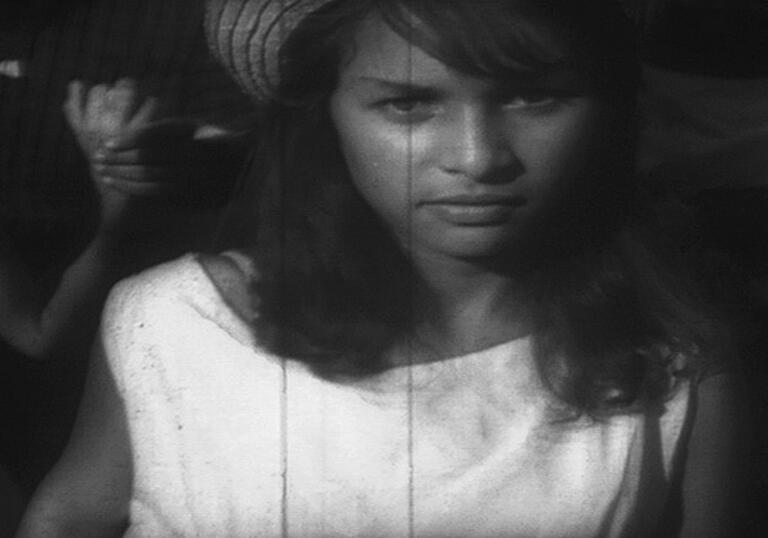
Booking fees
£1.50 booking fee per online/phone transaction.
No fee when tickets are booked in person.
Booking fees are per transaction and not per ticket. If your booking contains several events the highest booking fee will apply. The booking fee may be reduced on certain events. Members do not pay booking fees.
Biography
Nicolás Guillén Landrián (1938, Camagüey, Cuba -2003, Miami, Florida) was an Afro-Cuban filmmaker, painter and poet. The nephew of Nicolás Guillén, Cuba’s national poet, Landrián worked at the Cuban National Film Institute (ICAIC) from the early 1960s to the early 1970s, making short newsreels and documentaries.
A gifted director with an uncommon creative sensibility, Landrián was committed to a highly personal cinematic vision, which included an unapologetic focus on Afro-Cuban life and culture.
Programme
En un barrio Viejo
Nicolás Guillén Landrián / 1963 / 9'00
A tender and experimental short documentary that weaves a mosaic of Cuba, honing in on a microcosm: an old neighborhood where the nation's identity gradually unfolds amidst its diverse dualities.
Ociel del Toa
Nicolás Guillén Landrián / 1965 / 16'28
Ociel del Toa offers a poetic glimpse into the lives and daily endeavors of the residents along the Toa River, situated in Cuba's Oriente province.
Los del baile
Nicolás Guillén Landrián /1965 / 6'27
Nicolás Guillén Landrián's "Los del baile" vividly portrays the Cuban dance culture with a mix of solemnity and vivacity, set to the rhythms of Pello el Afrokán's music. Despite its vibrant depiction of the Havana night and the infectious energy of the dance floor, the film was banned during the early days of the Cuban revolution for its portrayal of an undesirable image.
Coffea Arábiga
Nicolás Guillén Landrián / 1968 / 17'37
Coffea Arábiga, initially commissioned as a propaganda documentary illustrating coffee cultivation around Havana, instead became a critique of Castro's regime by Guillén Landrián, leading to its exhibition followed by a ban once the coffee plan failed.
See more film for less
Get 20% off tickets and pay no booking fees. Plus, enjoy priority booking and £6 Members’ Screenings of the latest films every Sunday (T&Cs apply)
Cinema 2
Location
Barbican Cinema 2 & 3 are located on Beech Street, a short walk from the Barbican’s Silk Street entrance. From Silk Street, you’ll see a zebra crossing that will take you across the road to the venue.
Address
Beech Street
London
EC2Y 8DS
Public transport
The Barbican is widely accessible by bus, tube, train and by foot or bicycle. Plan your journey and find more route information in ‘Your Visit’ or book your car parking space in advance.





